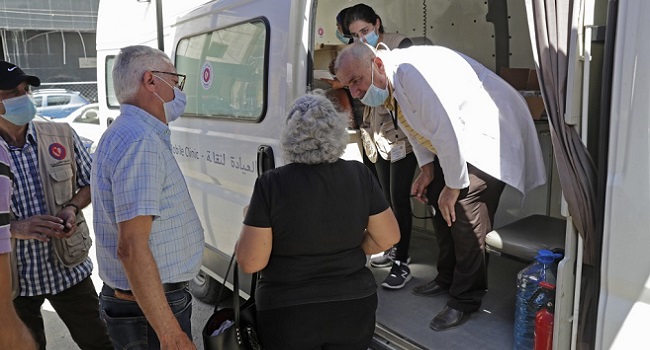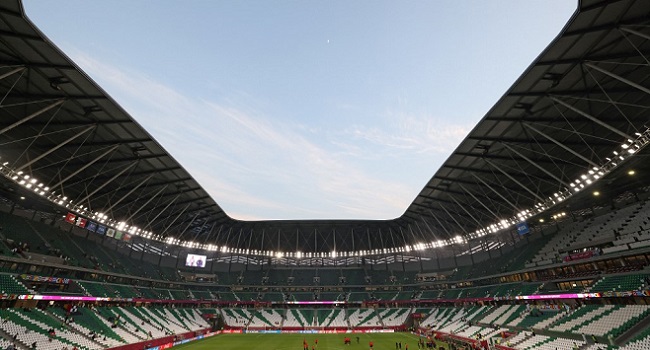
Lebanon’s health minister warned Monday that hospitals are reaching maximum capacity to treat coronavirus patients after the deadly Beirut blast overwhelmed clinics and as COVID-19 cases have mounted.
“Public and private hospitals in the capital in particular have a very limited capacity, whether in terms of beds in intensive care units or respirators,” the minister, Hamad Hassan, told a press conference.
“We are on the brink, we don’t have the luxury to take our time,” he warned, calling for authorities to take the “hard decision” to impose a new two-week lockdown to stem the spread of the virus.
Lebanon has seen a spike in coronavirus-related cases and deaths in recent weeks, and they have hit a new record in the aftermath of the massive explosion that ripped through large parts of Beirut on August 4.
The disaster — which killed 177 people and wounded more than 6,500, many by falling debris and flying glass as windows shattered — caused pandemonium in the capital’s already pandemic-stretched hospitals.
Lebanon reported a record 439 new infections on Sunday, bringing the total number of infections to 8,881, including 103 deaths since the start of the outbreak in February.
A previously planned lockdown was scrapped in the wake of the explosion.
“In the capital, the intensive care units and the departments set up for the coronavirus in public hospitals are full,” the minister told Voice of Lebanon radio earlier.
“In most private hospitals that receive coronavirus patients, intensive care unit beds are occupied” already by COVID-19 patients, he added.
– ‘Out of service’ –
The minister said the situation was exacerbated after several Beirut hospitals were hit by the colossal port explosion and left “out of service”.
The World Health Organization on August 12 said more than half of 55 healthcare facilities evaluated by the agency were “non-functional,” three major hospitals were out of operation and another three were running at well below normal capacity.

The minister said chaos in Beirut after the blast, Lebanon’s worst peacetime disaster, made it difficult to enforce compliance with pandemic precautionary and preventive measures.
“Our ability to control behaviour in the face of the virus is more limited,” the minister said.
He cited in particular “families going to hospitals to look for the wounded or missing,” but also the mobilisation of healthcare workers and citizens to seek or provide aid after the blast.
The explosion was caused by a fire in a warehouse where, according to the authorities, a huge amount of ammonium nitrate had been stored for years.
Since the explosion, thousands of volunteers have helped clean up rubble-strewn streets and distribute aid, while protesters have taken to the streets against the government, which is widely blamed for the negligence that led to the explosion.
Health officials have warned that the chaos caused by the blast risked leading to a further spike in infections.
The head of a major public hospital, Firass Abiad, has cautioned that, as attention has shifted away from the pandemic after the explosion disaster, “we cannot afford to allow the virus to go unchecked”.
AFP




